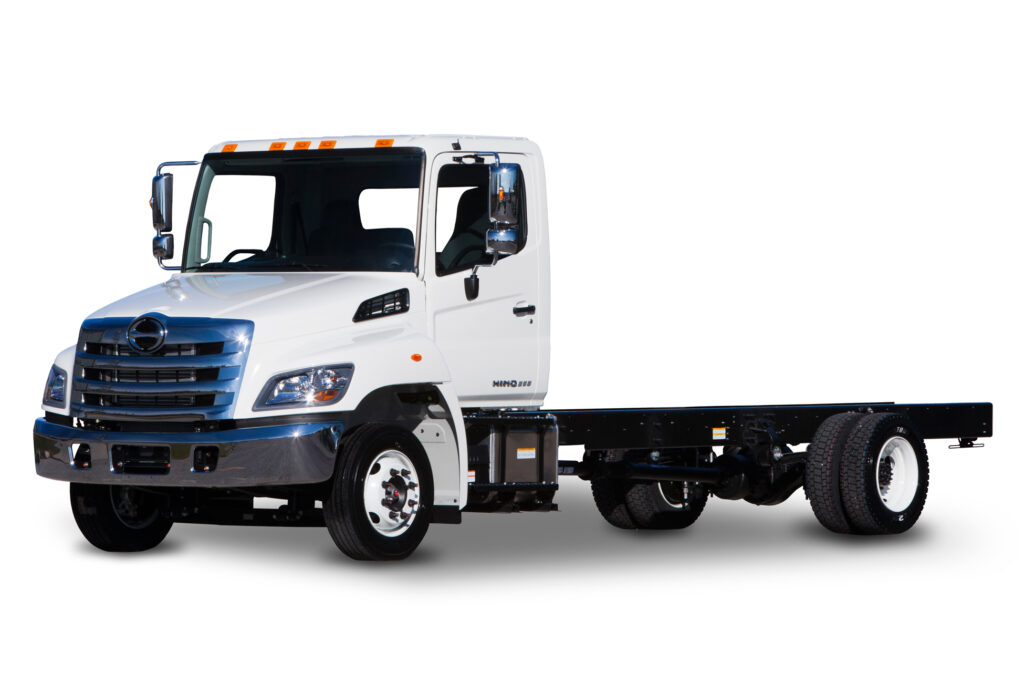Who would have ever thought we’d have a Toyota emissions scandal to cover. When Volkswagen was caught red-handed in 2015, its entire leadership structure was turned on its head. Seven years later, Volkswagen is still fighting to improve its image, and the automaker is turning to electric vehicles in hopes of winning forgiveness. Now we’ve learned about a different emissions scandal dating back nearly 20 years to 2003. This time, it’s from a Toyota owned brand; Hino Motors.
Will the Hino emissions scandal spill over to Toyota’s corporate leadership? In an investigation that keeps growing, new revelations suggest this is far from over.
Not Toyota’s First “Emissions Scandal”
Today’s news is not the first Toyota “emissions scandal”. At the beginning of 2021, Toyota paid $180 million over Clean Air Act violations and settled with the United States federal government after a decade-long period (2005 to 2015) of misreporting emissions data.
From Car and Driver:
“Under the Clean Air Act, automakers are required to notify the EPA when there are 25 or more vehicles or engines in a model year with the same defect in an emission-control component, according to the government’s court filing against Toyota, which said Toyota was late in filing as many as 78 emission defect reports.”
The United States lawsuit claims that Toyota employees in Japan knew of the issue and did not rectify it. Interestingly, the same pattern of behavior was identified today in the Hino Motors scandal.
Who Is Hino Motors, and What Happened This Time?

Hino Motors represents the Toyota Group in the global market for medium- and heavy-duty trucks and buses. Unlike the emissions scandal that Toyota settled last year, in this case, Hino Motors cheated emissions testing for 20 years.
Although most American drivers are not familiar with Hino, they do have a rapidly growing presence in the United States. Hino Motors is the fastest growing medium-duty truck brand in the U.S., and Hino dealerships can be found throughout the nation. Thousands of Americans are employed in Hino’s two American manufacturing plants, and dozens of sales and delivery centers.
In North America, Hino builds trucks in West Virginia, North Carolina and Canada. However production was halted for the first 10 months of 2021 as Hino had issues getting its engine certified in the U.S.
How could a foreign, little-known brand dominate so much of the commercial truck market that much of America’s supply chains rely on? Toyota owns 51% of Hino Motors. Considering that Toyota is the #2 automaker by sales in the American market, saying that Hino has a head start is an understatement.
Used car prices are dropping FAST. See the latest weekly data.
Corporate Investigation Finds a Deep-Rooted Culture of Lies, Intimidation
Earlier this year, Hino executives issued a public acknowledgement and apology for cheating emissions testing for nearly 20 years, and possibly longer. President Satoshi Ogiso bowed and apologized to customers and other stakeholders.
“I am so deeply sorry,” President Ogiso said. “Unfortunately, misconduct had been carried out for a widespread variety of models.”
Six months later, the investigative committee tasked by Hino Motors blamed the scandal on an environment where engineers feared challenging superiors in a toxic, high-stakes workplace. The committee’s report details an inflexible atmosphere that was constantly expected to live up to past achievements.
Investigative committee chairperson Kazuo Sakakibara, who is also a former prosecutor, told reporters that engineers and executives lost sight of values.
“The magnitude of their past successes has made them unable to change or look at themselves objectively, and they have been unaware of changes in the external environment and values,” he said in a press briefing.
So far, it is known that Hino cheated emissions testing on four engines used in medium- and heavy-duty trucks sold globally. Hino has recalled 47,000 trucks made between April 2017 and March this year, and Hino said an additional 20,900 would be recalled. With the latest revelation that emissions troubles date to at least 2003, the recall could be expanded to older model years.
Japan’s transportation ministry, which revoked the truck maker’s certification of the affected engines in March, said it would conduct an on-site investigation of the company.
Is This a Toyota Emissions Scandal?
Hino is essentially Toyota’s truck unit. Could the corporate problems spill over to Toyota as a whole? There are no indications that they will at this point. The stakes have always been higher for Toyota, whose sales dwarf those of its Hino unit.
Emissions scandals have touched other Japanese automakers in recent years. In 2017, Subaru and Nissan were investigated by the Japanese government. In 2018, the government said Mazda, Suzuki and Yamaha had improperly tested vehicles for fuel economy and emissions.
Proecutors, whistleblowers and executives all point to notoriously rigorous corporate culture as the main culprit. Something has to change before Japan’s massive automotive industry, which accounts for nearly 3% of the nation’s gross domestic product and supports an even larger manufacturing industry, suffers larger repercussions.








![10 Cars with the Lowest Cost of Ownership [2026 Data]](https://caredge.com/wp-content/uploads/2026/02/2026-Toyota-Corolla-Hatchback-400x250.png)




We don’t care. All this emissions bs had made a lot of vehicles fail in many ways, how about paying attention to the pollution manufacturing electric vehicles emit while being produced or the garbage produced by the vehicles going in for recall after recall. No one bats an eye there. Look at how many vehicles go to the junker because emission components are just outrageously expensive to fix let alone all the carbon issues that plague the GDI engines, DPF systems that clog up. Stop picking on auto manufacturers to fit your agenda.